Review of the year: the female groundbreakers of 2017
The Independent picks the 20 names whose strides in their fields challenged preconceptions and stereotypes and provided inspiration
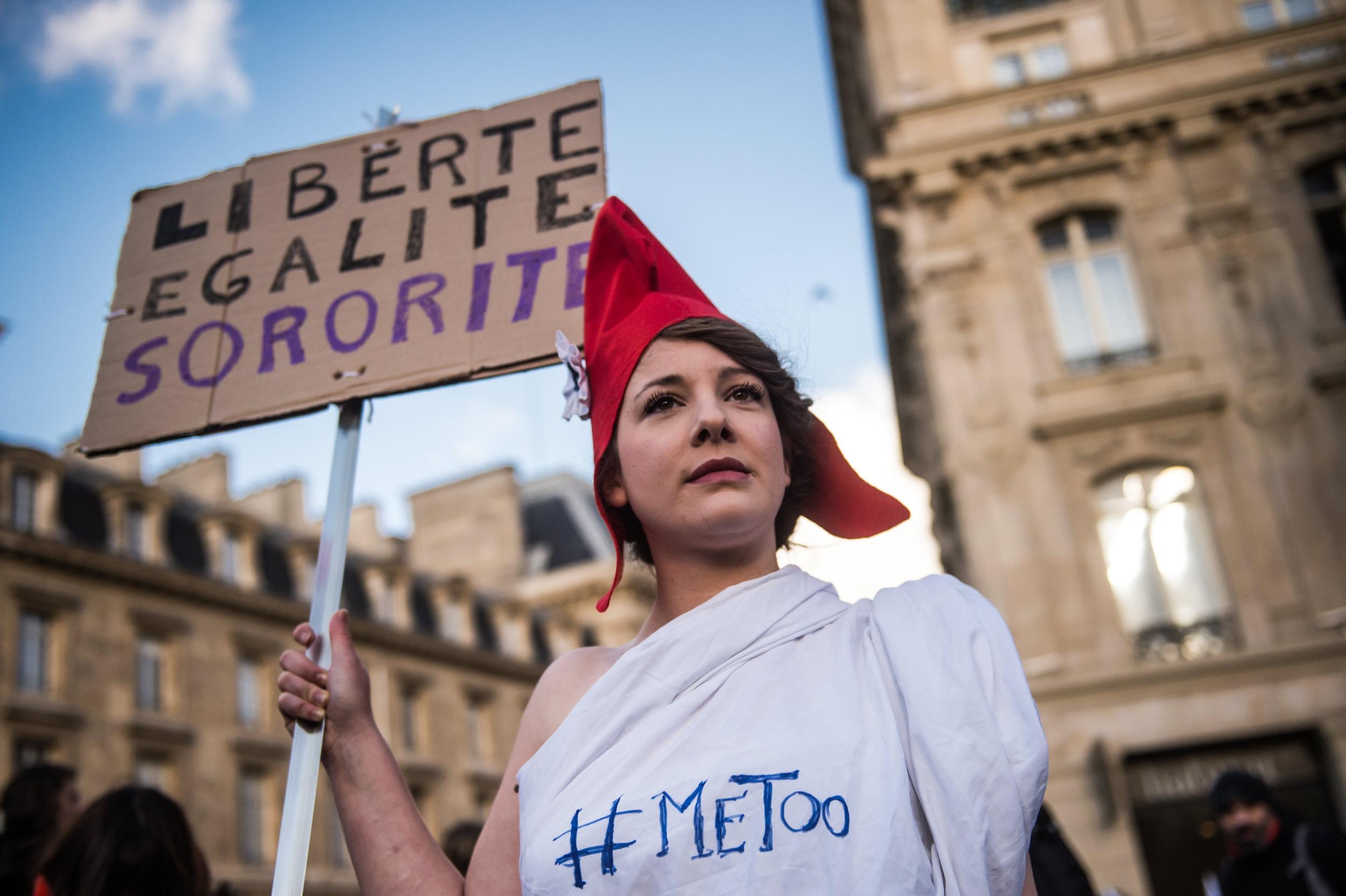
Your support helps us to tell the story
From reproductive rights to climate change to Big Tech, The Independent is on the ground when the story is developing. Whether it's investigating the financials of Elon Musk's pro-Trump PAC or producing our latest documentary, 'The A Word', which shines a light on the American women fighting for reproductive rights, we know how important it is to parse out the facts from the messaging.
At such a critical moment in US history, we need reporters on the ground. Your donation allows us to keep sending journalists to speak to both sides of the story.
The Independent is trusted by Americans across the entire political spectrum. And unlike many other quality news outlets, we choose not to lock Americans out of our reporting and analysis with paywalls. We believe quality journalism should be available to everyone, paid for by those who can afford it.
Your support makes all the difference.The Merriam-Webster dictionary has chosen “feminism” as its word of the year, and it has certainly been an extraordinary 12 months for women.
We have more female politicians on the world stage than ever before, from the UK to Germany and New Zealand. Countries are starting to tackle period poverty and abolish the tampon tax. A teenager in Mexico invented a bra that could detect breast cancer. Real and significant steps have been taken in the fight against female genital mutilation. The highest-paid boss in the UK is actually a woman. The vaginal mesh health scandal is finally getting the attention it deserves.
And in the wake of the Harvey Weinstein scandal and the viral #MeToo campaign, we’ve seen an explosion of reckoning – and recognition – of endemic sexual assault and harassment in all kinds of industries. A tangible cultural shift has occurred, as more women feel empowered to speak out against gender violence and more men gain a better appreciation of channels of power and female oppression.
For the first year, The Independent has chosen to highlight a selection of women who have had a real and positive social impact, as well as achieving outstanding results in their field. We’ve attempted to cover a wide range of industries, choosing both high- and low-profile women from literature to charity, media to music, politics to celebrity, activism to athleticism and so on.
We’ve also tried to arrive at a diverse selection of women – without resorting to tokenism – with candidates from a wide range of ethnicities, nationalities, sexual orientations, physical ability and background.
These are our picks for 20 Extraordinary Women of 2017.
Naomi Alderman – literature

Picture the scene: an alternate world where girls suddenly wake up and discover they have the power to electrocute people with their fingers. Suddenly, women are the dominant gender, with all the physical power.
What would happen? That’s the premise of Naomi Alderman’s wildly popular fourth novel, dystopian The Power, which this summer won the £30,000 Baileys Women’s Prize for fiction. More a work of feminist speculative theory than of science fiction, London-born Alderman questions whether women would abuse power any differently to men, given the chance.
Following in the footsteps of Margaret Atwood, her mentor in the Rolex Mentor and Protégé Arts Initiative, Alderman puts her female protagonists front and centre and refuses to look away from their flaws. This year marks a decade since Alderman was named Sunday Times Young Writer of the Year, and one of Waterstones’ 25 Writers for the Future.
She can hardly be pigeonholed, however; she also writes online games and in 2012, she co-created the top-selling smartphone fitness game and audio adventure Zombies, Run!, a market leader that has been downloaded millions of times. Alderman broadcasts and guest-presents on BBC Radio 4’s Science Stories, as well as working as professor of creative writing at Bath Spa University.
Eni Aluko – sports, race relations
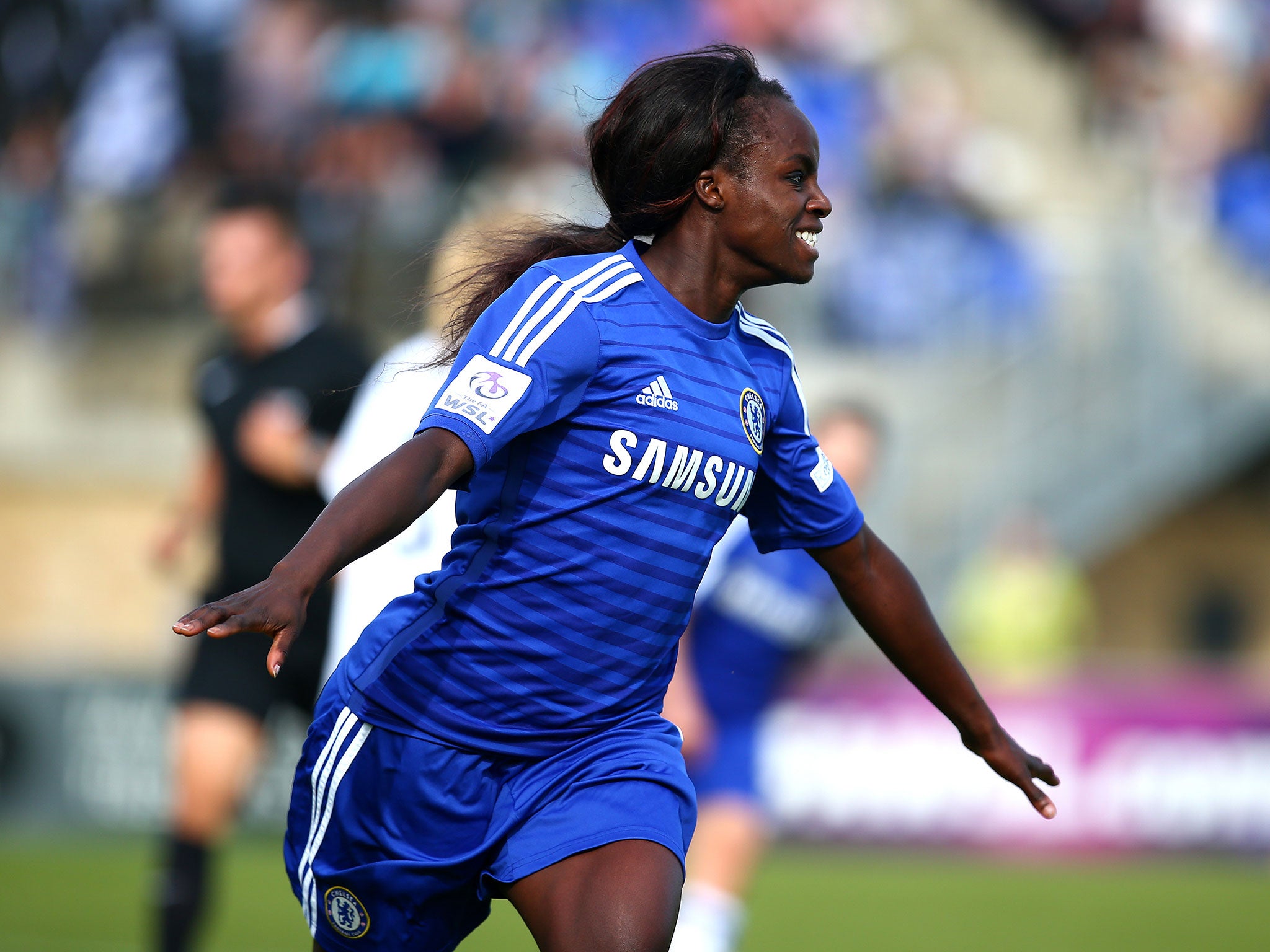
Proving you can be a team player on the field as well as off it, Chelsea striker Eniola Aluko has spent the past two years acting as a whistleblower and uncovering racism and discrimination in the Football Association. Then-manager for the England women’s team, Mark Sampson was eventually found guilty of using racist language towards her and her teammate, Drew Spence, and this year was sacked for inappropriate relationships with his players.
As a young woman, Aluko managed to take her A-levels while playing for England during the Uefa Women’s Euro 2005. She also went on to Brunel to gain a first-class law degree, and then to achieve international law qualifications. In 2014, she was the first woman to appear on BBC’s Match of the Day, and along with her teammates was featured in Fifa 16 video game, also a first for women.
She has made more than 100 appearances for the England national team, and represented Britain in the 2012 Olympics. Birmingham City Ladies manager Marcus Bignot describes her as “the Wayne Rooney of women’s football”. Memorably this year, former England goalkeeper David James posted a tweet appearing to accuse Aluko of lying about the racism she’d suffered, prompting grime artist Stormzy to jump in and call him “an absolute dickhead”.
Professor Mary Beard – academia

Professor Mary Beard is hardly your average scholar, having achieved a cultural niche of bringing classics to the masses via popular television, as well as her academic work and role as a promoter of women. She has been University of Cambridge professor of classics since 2004, and is also classics editor of the Times Literary Supplement, for which she writes a regular column.
In 2012, she wrote and presented the three-part television series, Meet the Romans with Mary Beard, presenting ancient life as relevant to a modern audience. As she achieved national fame – unusual for an academic – she had to contend with the backlash: critic AA Gill judged her “too ugly for television” in a review that mostly concerned her looks. Beard hit back, calling him part of “the blokeish culture that loves to decry clever women”.
She uses her high profile on Twitter to respond to sexist and misogynistic trolling, seeing this as part of her role as a public academic. This summer, she was embroiled in “something of a Twitter storm” when she defended the BBC for producing a schools video about Roman Britain featuring a black soldier. Beard was subjected to a torrent of online abuse, but argued her case based on academic sourcing.
Beard has also presented a lecture entitled “Women in Power, from Medusa to Merkel”, considering the extent of culturally embedded gender and arguing that “we don’t have a model or a template for what a powerful woman looks like. We only have templates that make them men.” She has spent this year proving otherwise.
Lisa Carne – environment
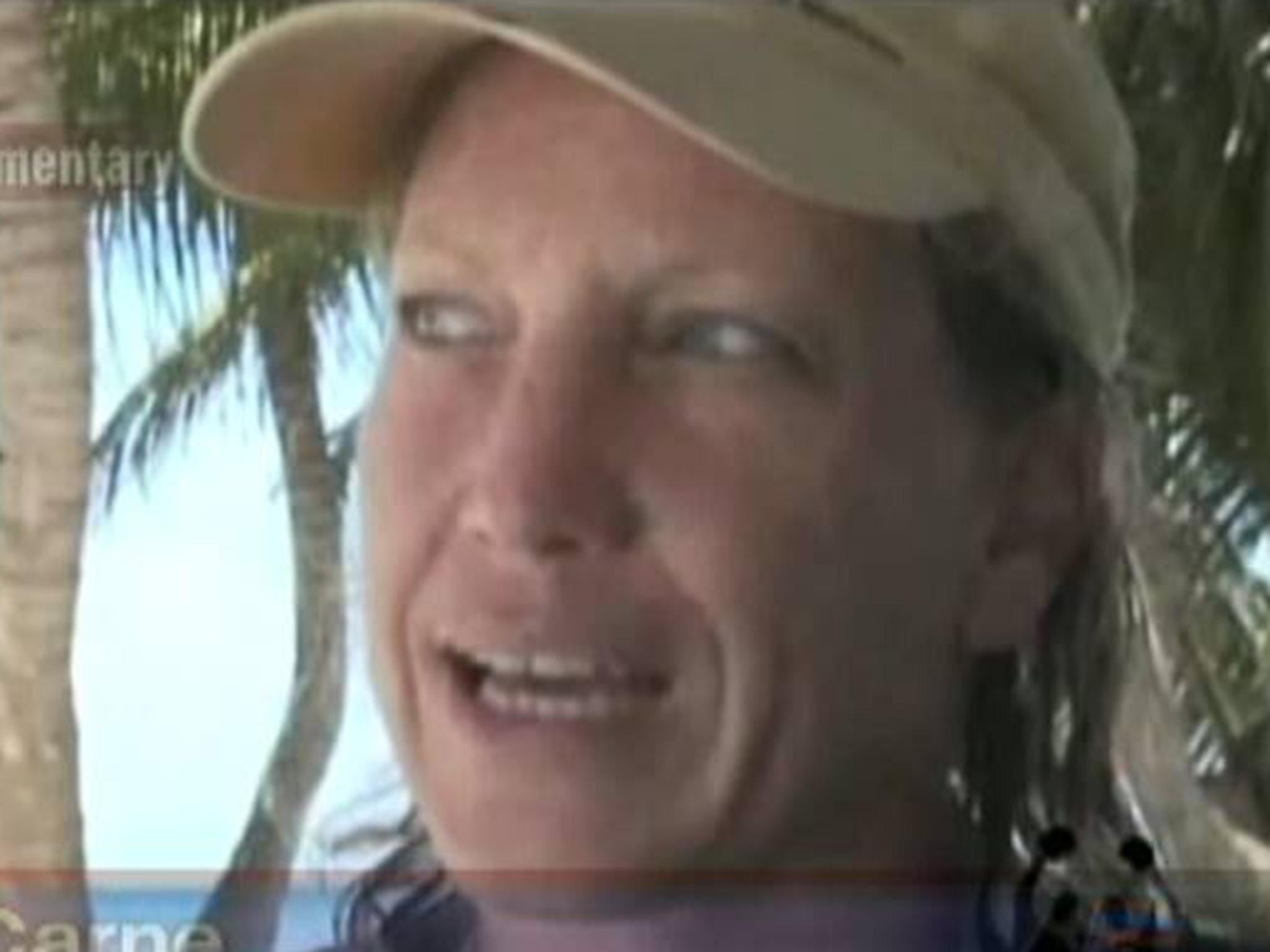
Lisa Carne was only a young biologist and coral researcher when she witnessed the effects of 2001 Hurricane Iris on the Central American country of Belize. In particular, she was struck by how vulnerable the southern Belize marine ecosystem was to climate change like rising sea temperatures.
So, in 2006, Carne founded Fragments of Hope, a community-based organisation that, with the help of a coral nursery, aims to restore an endangered species of Belize’s Barrier Reef, a Unesco World Heritage site. The project has been hailed as a huge success, significantly increased the coral population in Belize.
Carne herself was southern Belize’s first female diving instructor, and trains women to restore coral reef habitats while advocating for sustainable management. In 2014, Carne received the prestigious Ocean Hero Award from Oceana, Belize, for her work with endangered Acropora Corals and her activism in helping protect the marine environment for future generations.
Carne’s strides in research, eco-monitoring and science – traditionally male-dominated areas in the country – have provided access to training in the tourism and conservation sectors, allowing local women to earn higher daily wages. In a country where around half the population depend on tourism from diving, snorkelling and fishing, the ripples of Carne’s activism have spread further than the reef.
Denise Coates – business
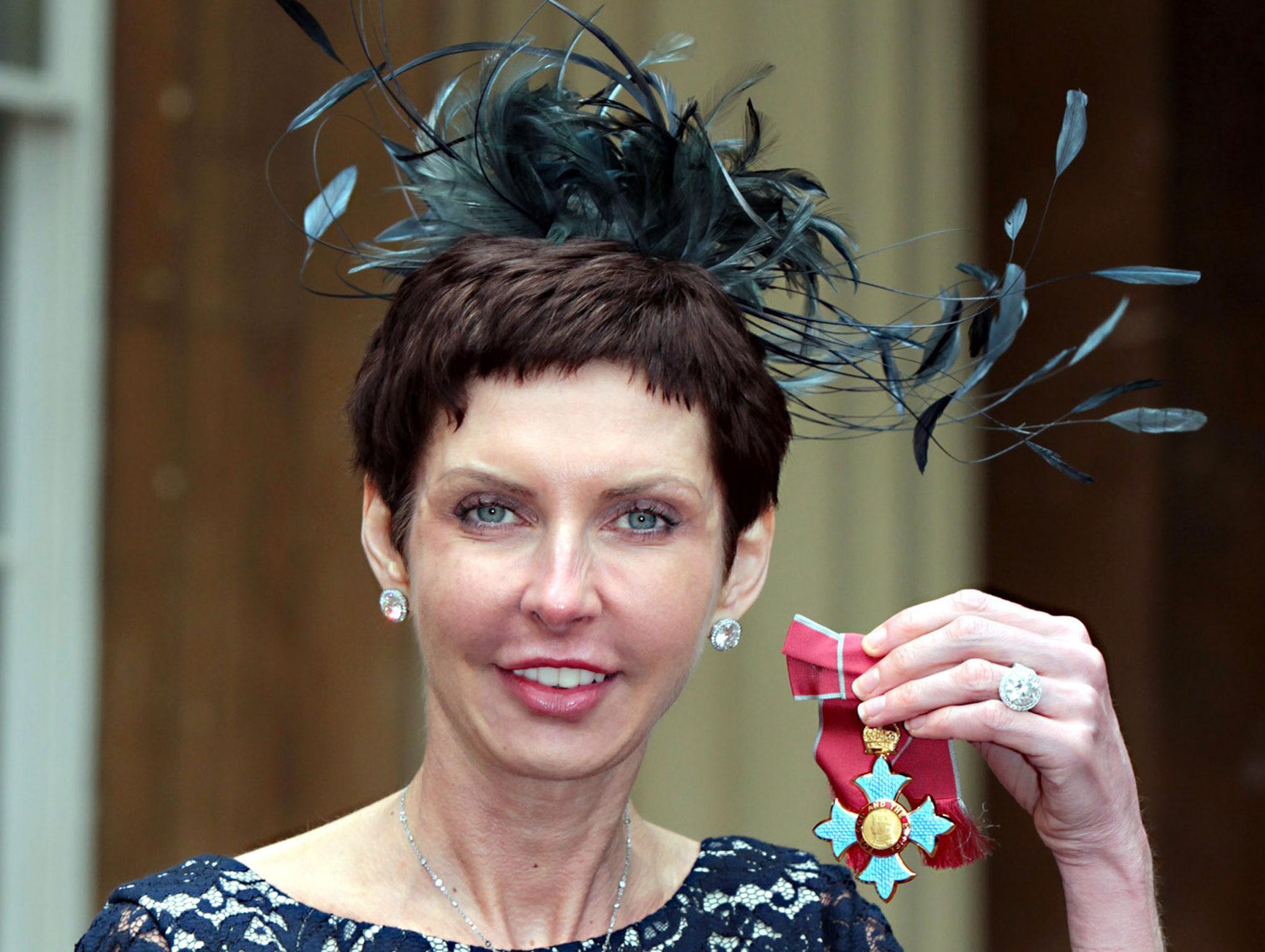
Denise Coates CBE may not be a household name, but when you look at her success and CV, that might come as a surprise. Founder of Bet365 and the UK’s highest-paid female boss, Coates took home a salary of no less than £199m last year. Unlike so many other successful business people in the UK, however, she’s very much self-made, making her success even more impressive.
The 50-year-old billionaire began her career as a cashier in her father’s betting shops. She graduated with a first-class degree in econometrics from Sheffield University, and became manager of the family business at the age of 22, expanding it to almost 50 shops. She launched Bet365 – which is still a privately held company – from a temporary office in a Stoke car park, back in 2000. It’s reported that she bought the domain name on eBay for $25,000 (£19,000).
“We mortgaged the betting shops and put it all into online,” she said in a 2012 interview with The Guardian. “We knew the industry required big startup costs but … we gambled everything on it. We were the ultimate gamblers, if you like.”
These days, Bet365 is one the biggest online gambling firms in the UK, and Coates – with her majority stake in it – is the highest-paid female boss ever in the country. Her personal fortune is estimated at £3.06bn, according to Forbes. She was awarded a CBE in 2012 and was named one of the 100 most powerful women in the UK in 2013 Radio 4’s Woman’s Hour.
Dany Cotton – community service
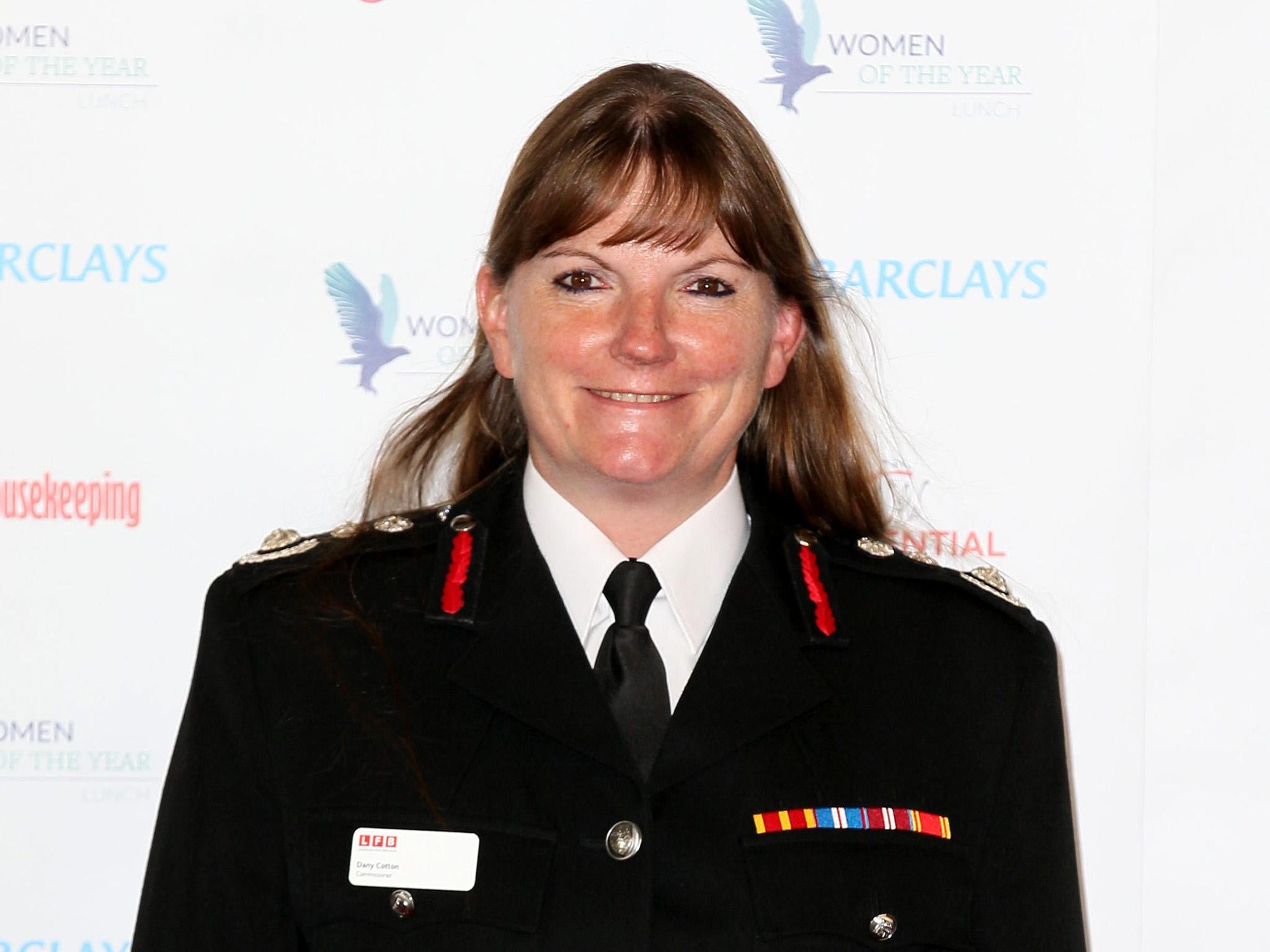
This has undeniably been a difficult year for the emergency services, between fires, suicide bombings and terrorist attacks. 2017 also marks the year of the first female Commissioner of the London Fire Brigade in its history: Dany Cotton, QFSM. Incidentally, QFSM stands for Queen’s Fire Service Medal – of which she was the first female recipient in 2004. It also marks seven years since this newspaper named her one of “100 women who changed the world”.
Cotton, 47, is now in charge of 102 fire stations and nearly 5,000 firefighters and 800 other staff. She oversaw emergency responses to the London Bridge and Westminster attacks, was in command of the Fire Brigade when the Grenfell Tower fire erupted: a shocking experience and a disaster she calls “unprecedented”.
This year, she also found the time to spearhead a campaign fighting sexism and promoting the gender-neutral term, firefighter, aiming to encourage young women to consider a career in the fire service. “One single thing that would help bring more women into the service? Stop saying ‘fireman’,” she told The Guardian. “What’s wrong with Firefighter Sam? We have to change that perception of a six foot hairy-arsed bloke who can kick a door down.”
Charlie Craggs – transgender activist
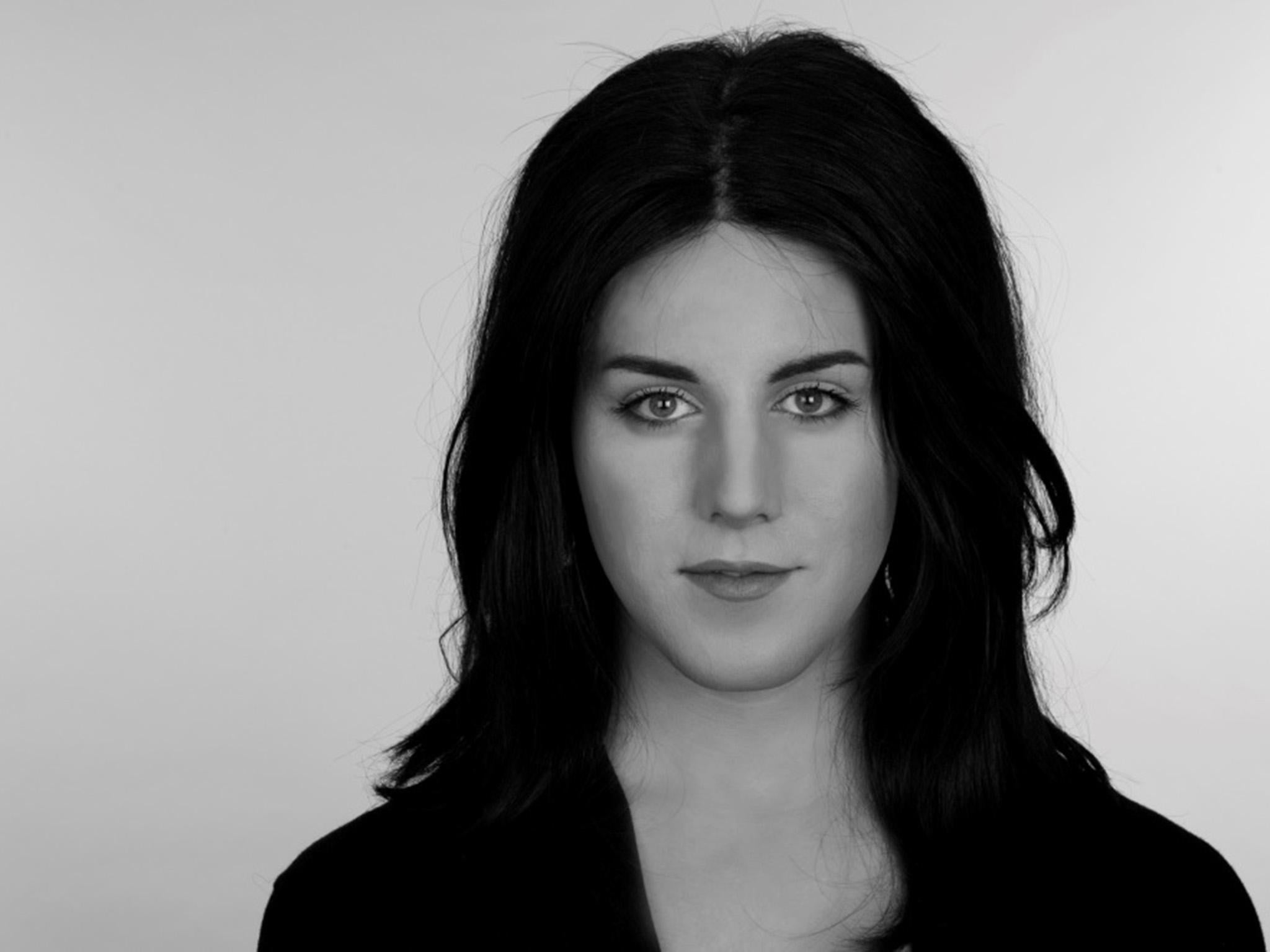
Charlie Craggs has found a novel way to tackle transphobia, ignorance and discrimination. The 25-year-old travels the UK with her pop-up nail salon and offers the public free manicures, as well as the chance to sit down and chat with a trans person. She encourages them to ask her questions, all the while breaking down barriers just through her affable personality.
“I want people to go away with more than just a manicure; I want them to go away an ally,” Craggs says. “I’m trying to change hearts and minds a nail at a time.“ The award-winning initiative, “Nails Transphobia”, which Craggs set up when she was a student in 2013, has been highly successful because, as Craggs explains, many people haven’t met a trans person and often have misconceptions.
The project travels around from institutes like the Victoria & Albert Museum, to festivals like Gay Pride and Edinburgh Fringe. Last year, Craggs set up “Nailing It”: a series of workshops for the trans community, with support talks, make-up tutorials and self-defence classes, to name a few. Charlie was ranked on The Observer’s 2016 New Radicals list, a list of social innovators in Britain, and was also named one of the most influential LGBT people in the UK by The Independent.
This year she published To My Trans Sisters, a compilation of essays edited by Craggs, full of advice from a range of women from models to politicians.
Ali Golds – social work, parenting
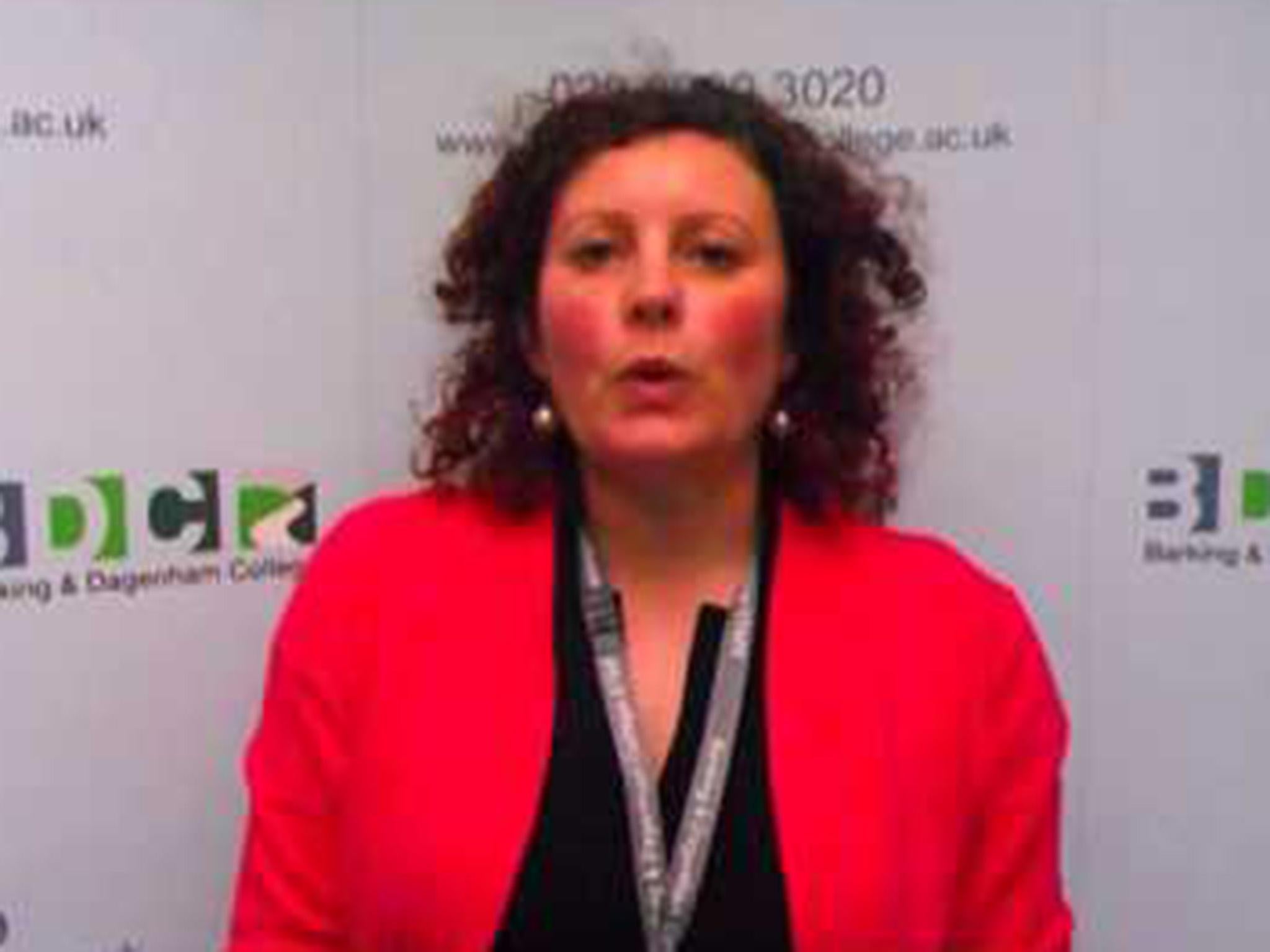
Ali Golds is that rare person who has managed to channel negative experiences into positive achievement. A survivor of childhood and domestic abuse who left school when she was 16 with few qualifications, and a single mum who faced bankruptcy when her marriage broke up in 2005, Golds is now a successful businesswoman.
She has an HND and a postgraduate certificate in education, and five businesses under her belt, including her company Operation Enterprise, which supports young entrepreneurs of all academic abilities and backgrounds who combine their school studies with developing their businesses. Perturbed by the overwhelming majority of boys in her sessions, and the fact that women account for less than a third of self-employed, Golds was inspired to set up the Juno Project, which helps women to set up their own businesses, as well as challenging negative stereotypes.
Through the Project, Golds also supports vulnerable teenage girls and women who struggle financially, as well as helping female entrepreneurs develop start-ups. Many of the girls have been excluded from school, so the project helps them regain confidence and self-esteem, as well as develop employability skills.
Golds also found that a lot of the women coming to her workshops were single mums wanting to support their families. In response to this, Golds was inspired to write her first book, How To Be Your Own Boss as a Single Mum, which reached number eight in the Amazon Small Business and Entrepreneurship chart. She has even advised the Government on a review of education, and believes that female entrepreneurs often plan their work with more detail than their male cohorts, as well as being fantastic multitaskers.
Tierra Guinn – science
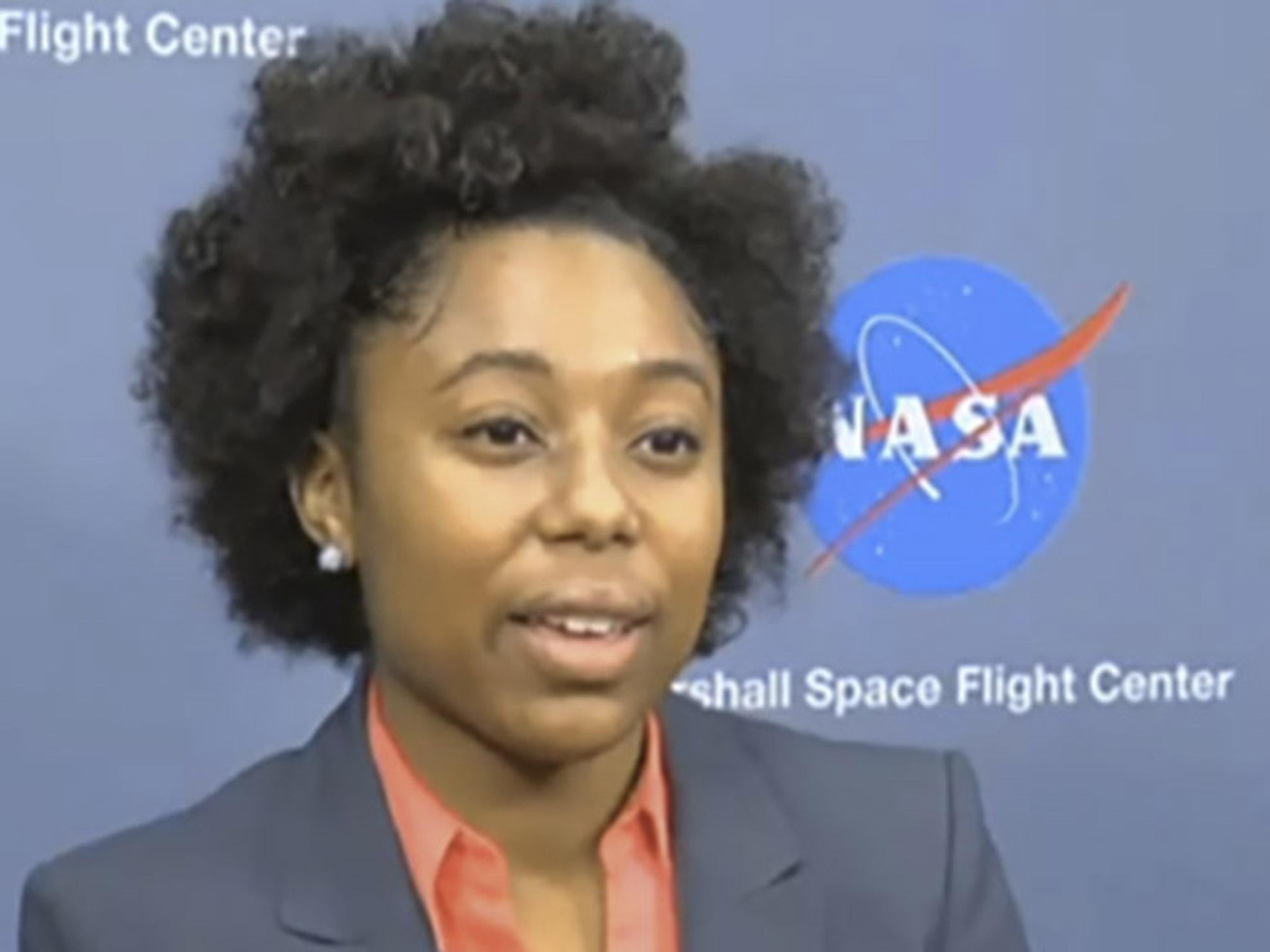
Tierra Guinn’s story echoes this year’s acclaimed film Hidden Figures, the true and little-known story of three brilliant African-American women who played instrumental roles at Nasa during the Space Race. Guinn’s love of numbers was inspired by her accountant mother, who encouraged her with maths games in the supermarket.
From Georgia, her goal from an early age was to become an engineer (“One day I saw a plane fly by and I just had this realisation, ‘huh, I can design planes,’”) and she chose a middle school with good STEM (science, technology, engineering and maths) prospects. Now at just 22 years old, Guinn works as a Rocket Structural Design and Analysis Engineer for Boeing, which along with Nasa is creating Earth’s most powerful rocket, ready for deep space. She designs and analyses parts of the rocket – a role she took up even before graduating from Massachusetts Institute of Technology with a degree in aerospace engineering.
She wants to encourage other women of colour to enter the field, and this year returned to Lindley Middle School, delivering a speech which inspired students and teachers alike. “There’s no telling where we’ll be going next,” Guinn said on a separate occasion. “Maybe we’ll make it to Pluto. But diversity is a key component.”
Olivia Jackson – sport/disabled rights
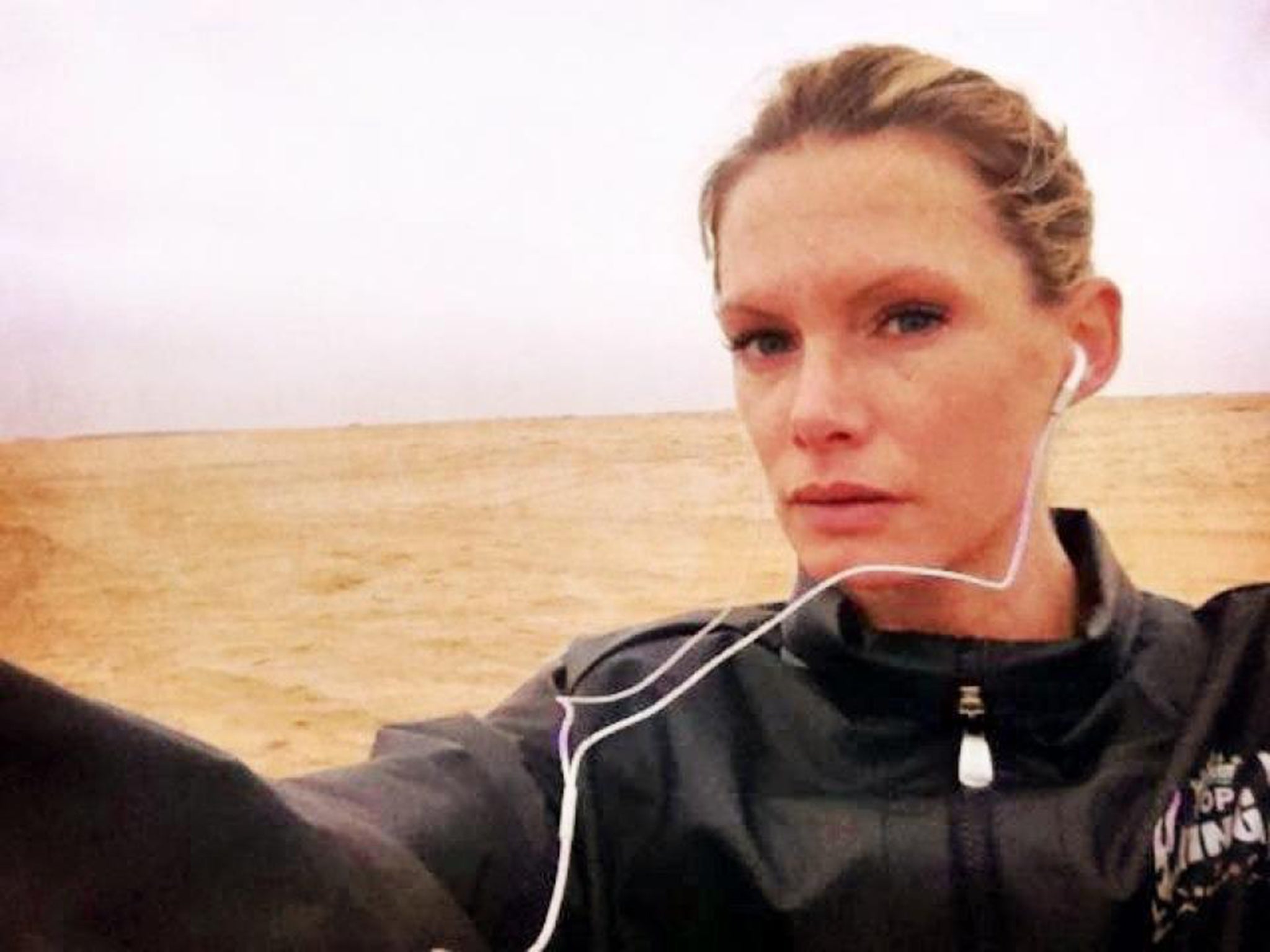
South African-born Olivia Jackson is not a woman to be trifled with. Formerly a successful model, she was also ranked as a professional Muay Thai fighter, having trained and competed in Thailand for five years.
She also worked as a professional stuntwoman for more than six years, featured in numerous television series and films including Star Wars: The Force Awakens, Guardians of the Galaxy and as one of Charlize Theron’s stunt double in Mad Max: Fury Road. However, in 2015, the 36-year-old suffered a very severe motorbike accident when filming on the set of Resident Evil: The Final Chapter, colliding head on with a camera crane vehicle that failed to move out of her way.
She was left with life-threatening injuries and extensive scarring, and eventually her left arm was amputated. Not to be deterred, this year Jackson joined Team BRIT, a competitive motor-racing team consisting only of drivers who are disabled. The team races able-bodied drivers on a level playing field: unique in the world of sport. The team aims to make history by taking injured troops and civilian disabled drivers through to the famous Le Mans 24-hour endurance race, becoming the first ever all-disabled team to do so.
Rose McGowan – arts
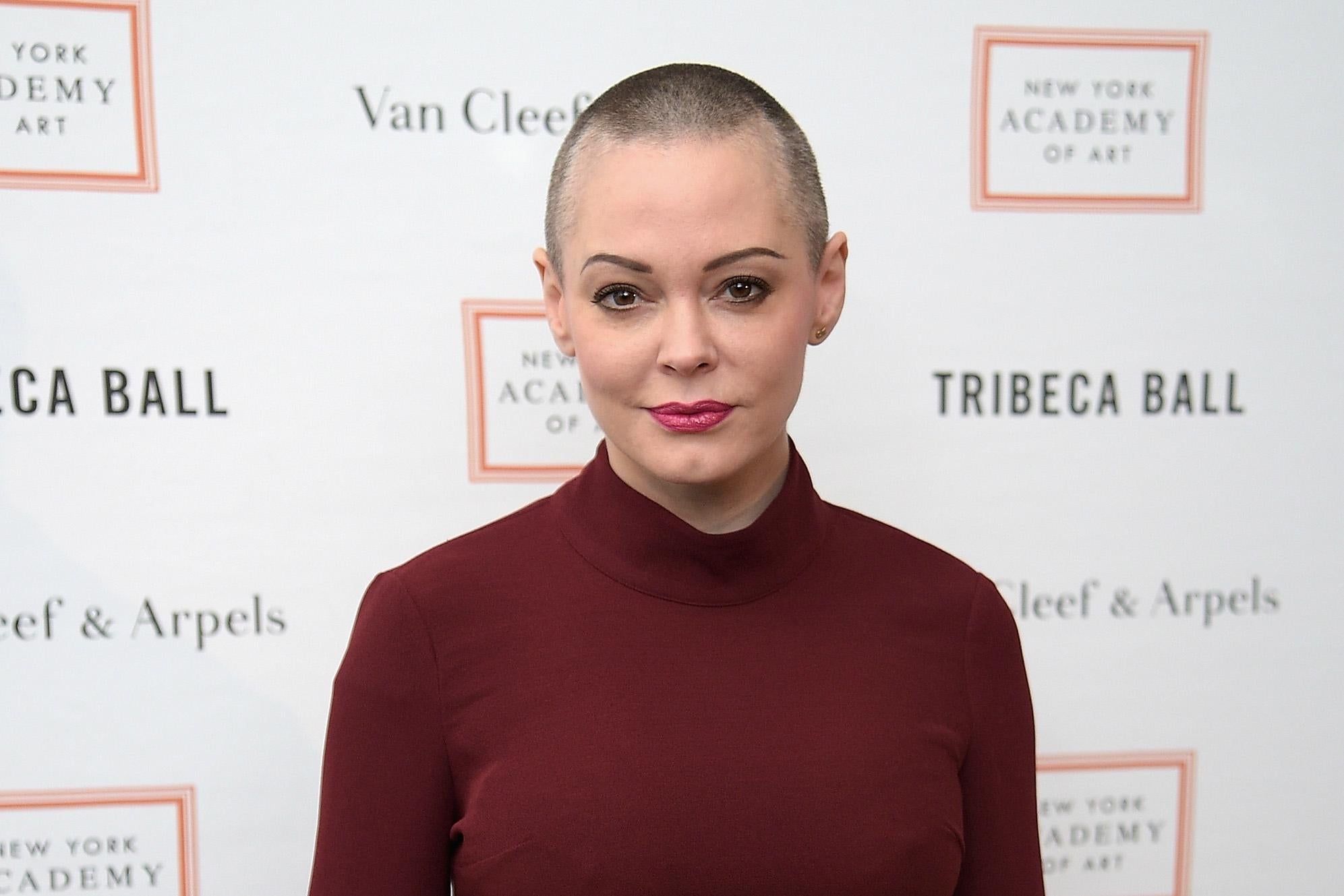
After a lifetime working in the media industry, Rose McGowan has racked up an impressive list of credits, including writer, director, actress, entrepreneur, music artist and, more recently, author and feminist activist. Best known for her part in the 1996 slasher film Scream, and her recurring role as Paige Matthews in the American television series Charmed, her directorial debut, Dawn, was nominated for the Short Film Grand Jury Prize at the Sundance Film Festival in 2014.
This year, McGowan was one of the first women to speak out against disgraced Hollywood producer Harvey Weinstein, paving the way for other accusations and opening up a dialogue about widespread sexual harassment and assault in the media industry. Vocal on social media, McGowan publicly lent her support to the #MeToo campaign while founding the hashtag #ROSEARMY as a means for others to join her in a collective voice.
She was named as one of Time magazine’s “Silence Breakers” in the annual December “Person of the Year” issue, celebrating her prominent role in prompting a cultural shift on issues of sexual violence against women. McGowan’s memoir and manifesto, BRAVE, a “a no-holds-barred, pull-no-punches accounts of the rise of a millennial icon”, will be published in January.
Prishita Maheshwari-Aplin – music/science

Prishita Maheshwari-Aplin might be only 20 years old, but she’s already racked up a staggering set of achievements in various fields: scientist, journalist, musician, published academic, activist. At just 16, she was the youngest ever shortlisted candidate for a Wellcome Trust Science Writing Prize.
At school, she created a science blog called “Darwin’s Beard”, making current research accessible for young audiences and inspiring students to science. Some of her published works include musings on genetics and medical science, and she’s been nominated by Intel for a WISE Girl award for inspiring young women in science.
Maheshwari-Aplin is an elite violinist and soprano singer, having trained at a specialist music school, and played with Chetham’s Symphony Orchestra, performing in masterclasses with Nicola Benedetti, Viktoria Grigorieva and Madeleine Mitchell. Maheshwari-Aplin is now first violin at the Cambridge University Chamber Orchestra.
She’s also worked as deputy editor of The Cambridge Student, won the university instrumental award for the third year running, and has just spent two months in Tanzania working as an Impact Evaluator for an International Education Charity. In fact, she’s just been appointed project director for next year’s trip. Dr Tucker Gilman, of the University of Manchester, spoke for all of us when he commented: “Prishita’s achievement is astounding.”
Gina Miller – politics, philanthropy

Investment manager and campaigner for political transparency she may be, but Gina Miller is probably better known for being the woman who took Brexit to court – and won. After the referendum, the British-Guyanese businesswoman challenged the legal authority of the Government to invoke Article 50 using prerogative powers, demanding a proper parliamentary debate and approval.
In November last year, the High Court of Justice ruled that Parliament had to legislate before the Government could invoke Article 50, which was subsequently upheld by the Supreme Court in January. Miller faced a torrent of online abuse from Brexit supporters, including racial abuse and death threats, but didn’t back down on her campaign for transparency and democracy. After the election this year, she also launched a legal challenge against the Conservative-DUP agreement.
Miller is also a long-term philanthropist; in 2009, she established Miller Philanthropy (now the True and Fair Foundation), with the aim of increasing efficient philanthropy in the face of growing social inequality. This background attuned her to hidden charges, and what she has described as “flagrant misselling within the asset management market”. In 2012 she set up the True and Fair Campaign to limit this, attracting some opposition in the City and earning her the nickname of “black widow spider”. A few years later, in 2014 she also established MoneyShe.com, a female-focused investment brand. This year, she was named in Powerlist as the “UK’s most influential black person”.
Kath Sansom – activism, women’s health
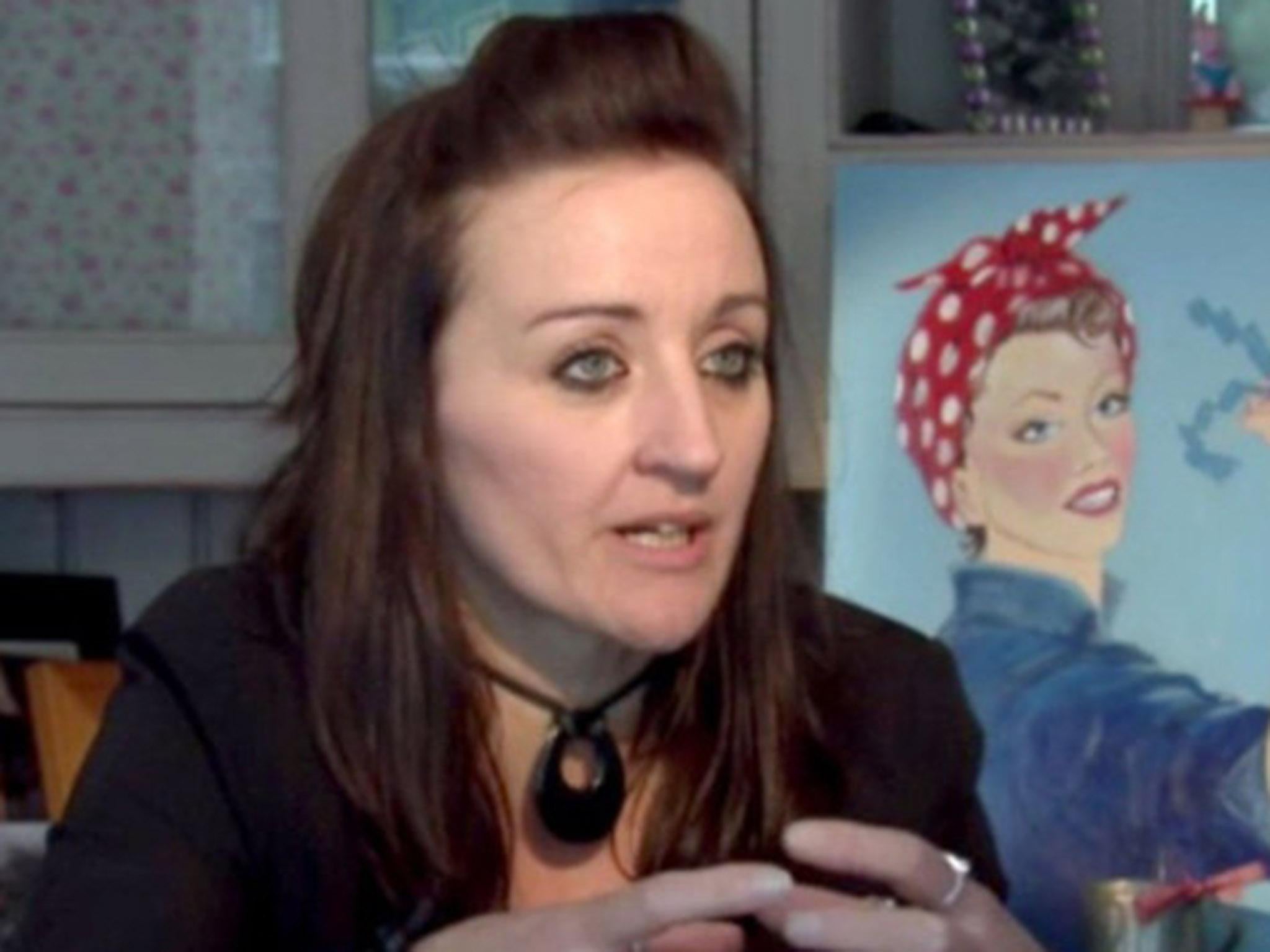
The past few years have seen the “biggest health scandal since thalidomide” blown wide open, and nobody has done more to expose the truth than Kath Sansom. In 2015, after she received a vaginal mesh implant to treat incontinence, she suffered agonising pain and knew something was wrong. She began to do some research online, and stumbled into a world of pain and ignored suffering: what would become known as the vaginal mesh scandal.
As she herself wrote: “It probably needed a journalist to be mesh injured, to provide the final media push needed for the issue to get to Westminster.” Since her surgery and particularly this year, Sansom has used her extensive research and expertise to bring the scandal to light, keeping it in the national news agenda and tirelessly campaigning for awareness via the group she founded, Sling the Mesh.
This October, Sansom spearheaded a cross-party debate in Parliament, and succeeded in bringing the issue enough attention to warrant a BBC Panorama investigation. As her group gains more members by the day, Sansom has also used social media to act as a touchstone of comfort and advice for all the new “meshies”, as the community calls themselves. To the thousands of men and women injured by hernia and vaginal mesh implants, Sansom is more than a campaigner: she’s a lifesaver. And if her activism leads to a full ban on mesh implants, that’s exactly what she’ll be.
Lauren Soderberg – food and drink
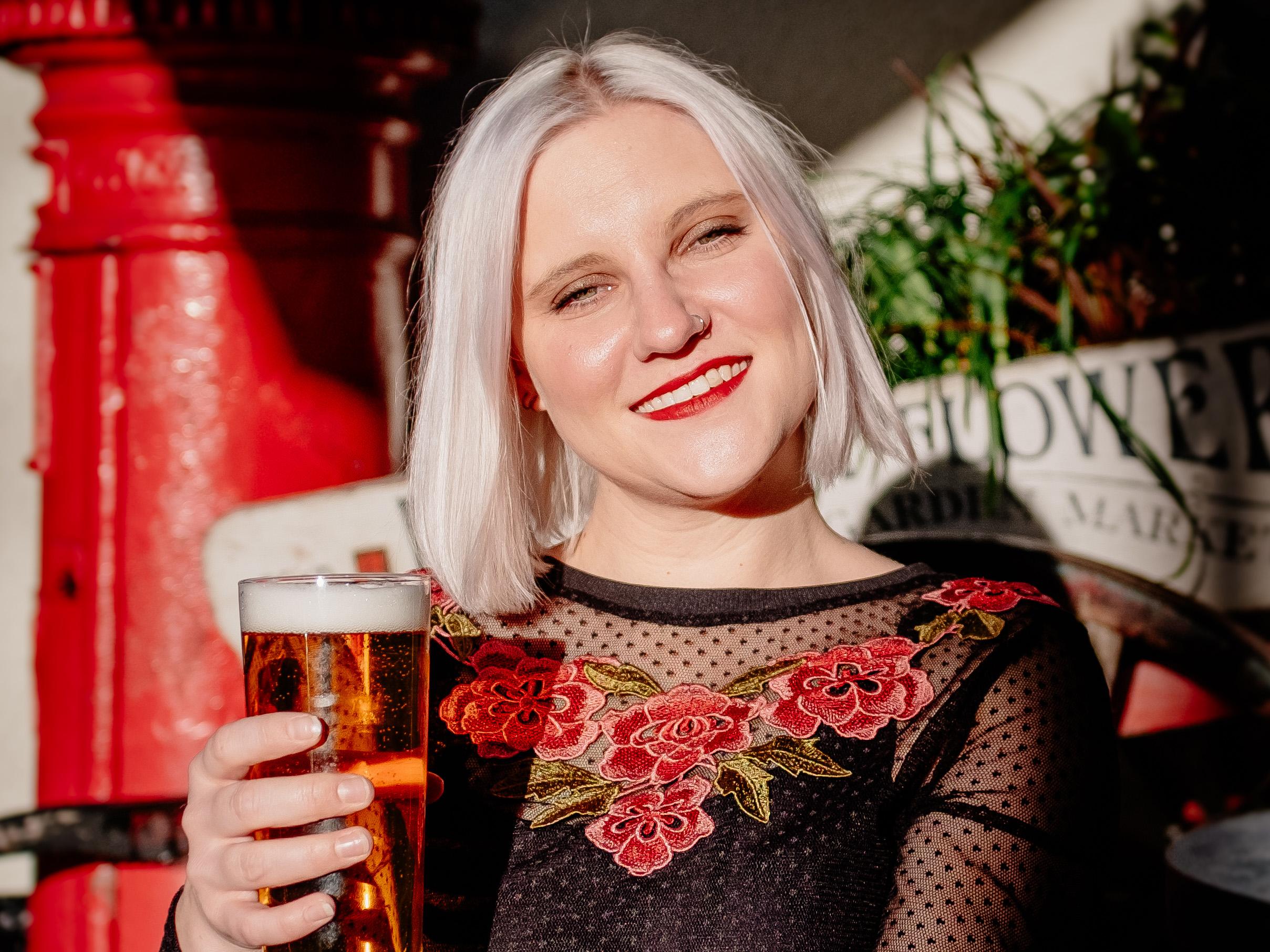
You might not have known that the position of beer guru for the New World Trading Companies (a pub group across 19 sites in the UK) even existed, but this year Lauren Soderberg became the first woman to achieve it. In a typically male-dominated industry, the NWTC wanted to showcase a female expert: Soderberg passed her NWTC Master of Beer qualification (including a two-hour exam, a 2,000-word essay and a blind tasting) with flying colours.
She is now head of beer training in more than 20 pubs, and regularly holds ale-tasting masterclasses for consumers. She is a proud teacher for the next generation of beer gurus and says being a mentor is her favourite part of the job. “I am so proud to be able to help girls pave new careers and follow their passion,” she says. “Beer has always been such a masculine industry and it’s time for the girls to take over. Being able to be a mentor and a friend to these girls as they prove themselves against some of the biggest male names in the industry makes my job worthwhile.”
She has already been highly featured across female networking events such as the Women in Law in Manchester and will be on the panel for Beardless Beer Week – an event entirely dedicated to women in the beer industry.
Dr Laura Stachel – medicine/environment
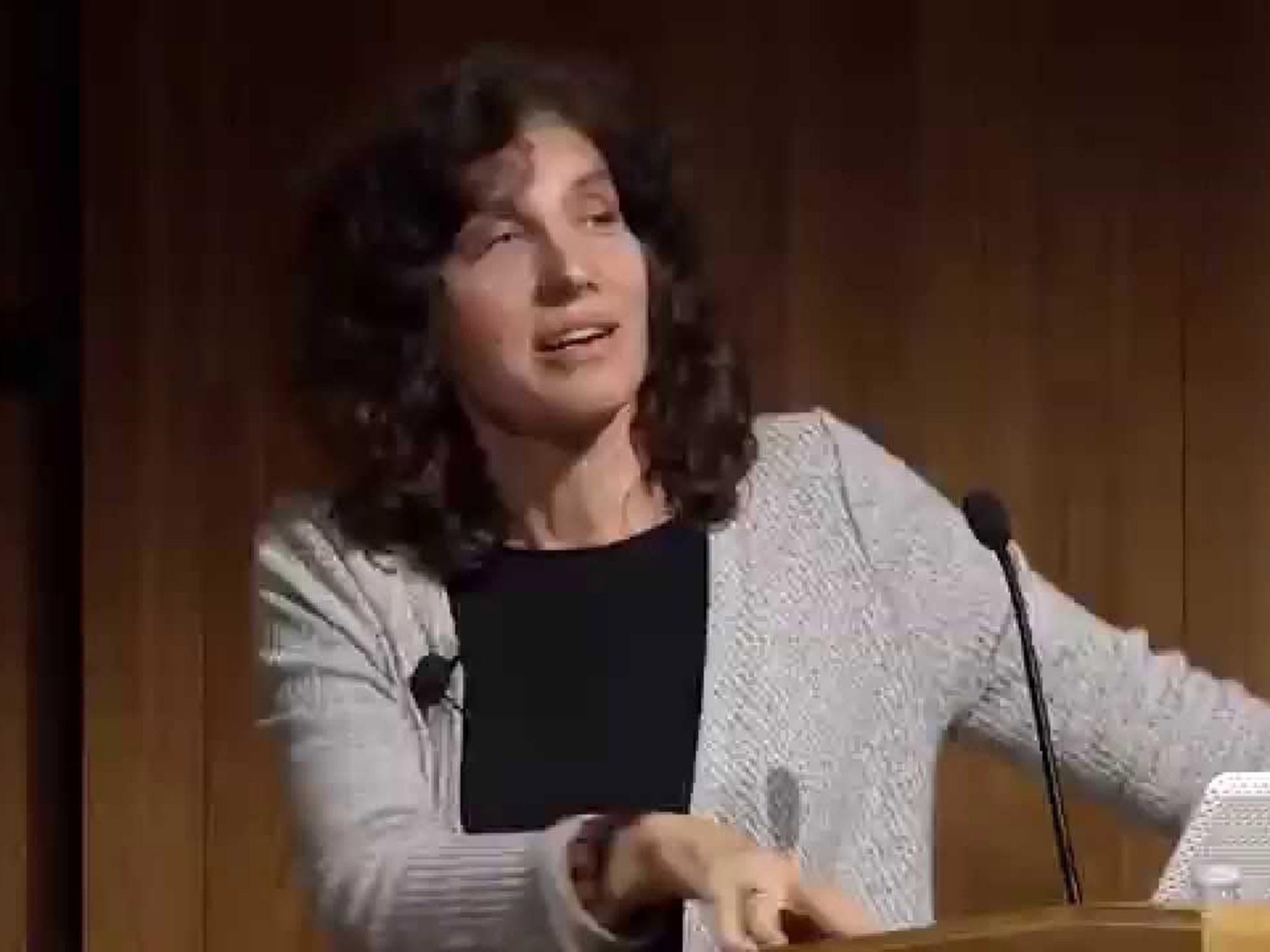
Obstetrician-gynaecologist Dr Laura Stachel has combined two worthy causes into one: maternal health and renewable energy sources, to make strides in both simultaneously. In 2008, watching doctors perform an emergency Caesarean section in Nigeria, Stachel was alarmed when the power went out.
The doctors were, however, very used to it. Stachel had a flashlight with her, and the surgery was able to continue. Realising her skills were “utterly useless without something as basic as light and electricity”, Stachel co-founded a non-profit project called We Care Solar with her husband, which brings solar power to remote, off-grid and under-resourced medical centres across the world – in tiny compact bags known as “Solar Suitcases”.
These contain medical-quality lighting, foetal monitors, phone chargers and headlamps, and are given to community health workers and traditional birth attendants. They are now in use all over Africa, Asia and Central America, where they continue to improve safety and neonatal health, and to save labouring mothers’ lives. This March, the project announced its intention to support Liberia as it becomes the first country to pledge to “Light Every Birth” with clean solar lighting and electricity.
Stachel says: “We look forward to working hand in hand with our Light Every Birth partners to improve the functioning of off-grid health centres, and to advocate for the fundamental right for all mothers to deliver with reliable lighting and power.”
Camilla Thurlow – celebrity and activist

You may not have enjoyed it, you may not even have watched it, but you cannot deny that ITV’s dating “reality” show Love Island became a cultural phenomenon this year. Even Jeremy Corbyn professed to be a fan. And one contestant, Camilla Thurlow, gained widespread media attention for her unusual profession.
The 28-year-old rumoured ex of Prince Harry, from Dumfries, works in explosive ordnance disposal (EOD), or minesweeping. EOD also involves recovering abandoned – and unexploded – bombs, shells and grenades. She works for the charity the Halo Trust, the world’s largest humanitarian mine-clearing organisation, made famous by Princess Diana in 1997 when she walked through a field in Angola. Thurlow has worked in Cambodia for 18 months, where there are still an estimated five million unexploded mines, and more recently Afghanistan and Zimbabwe.
She achieved popularity on the show not just for her soft-spoken and sweet nature and romance with a fellow contestant, but for her open discussion of her feminist ideals in the face of some outstandingly bone-headed sexism. She told The Times (who describe has as the perfect millennial icon): “My main worry was whether I’d done the topic justice. It is such a crucial time for us to talk about equality.”
Women of the White Helmets – peace, military activism
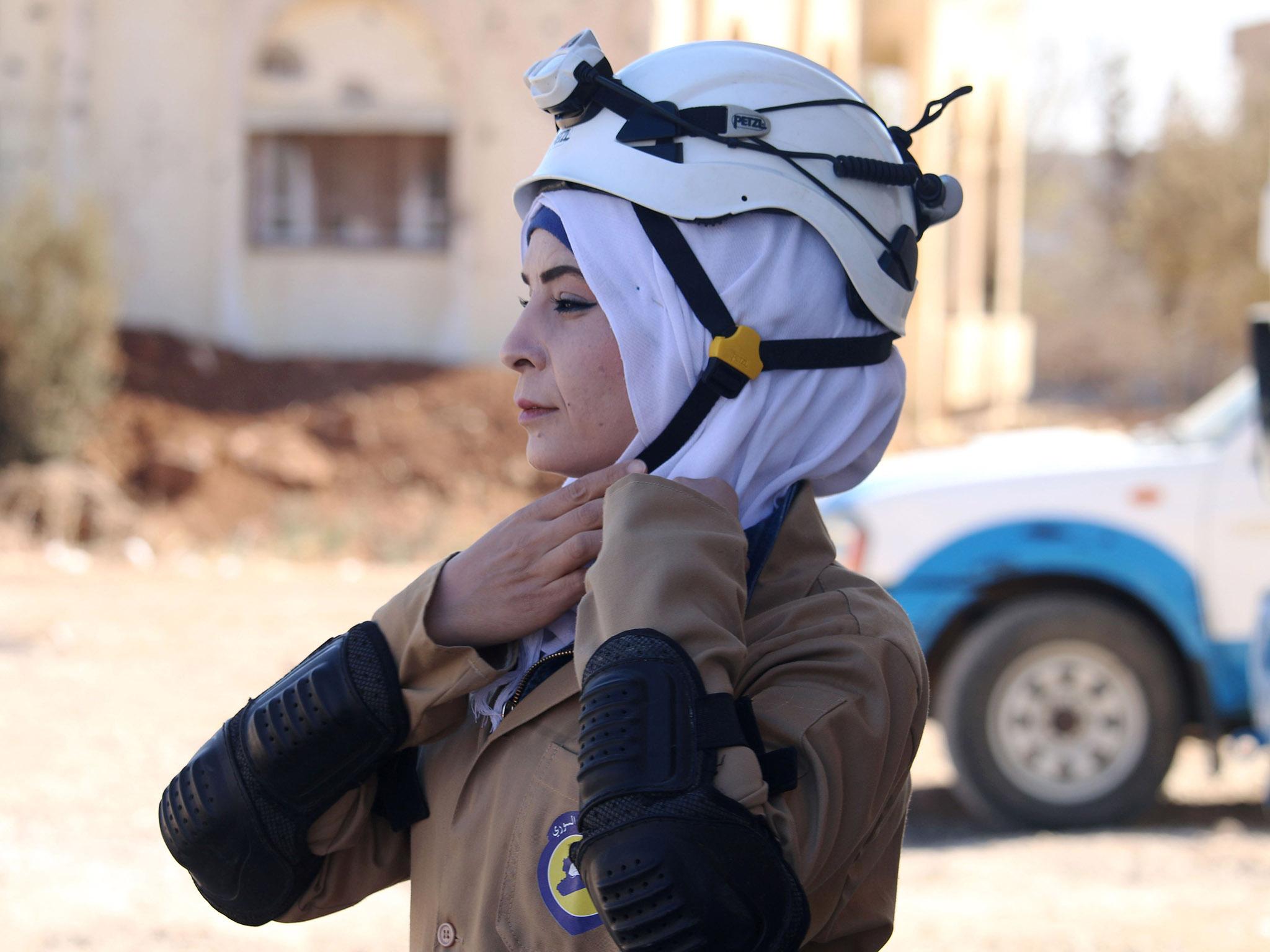
In the face of one of modern history’s most devastating conflicts, one small group of volunteers continues to work save lives: the Syrian Civil Defence – or the White Helmets. Founded in 2012, the volunteer group operates in the rebel-held strongholds of Syria where the bombs fall most frequently. They rescue people from rubble, put out fires and take casualties to field hospitals, and they have saved an estimated 12,500 lives.
The group was exclusively male until 2014, but since then, around 140 women have joined the project. Although this shocked some at first, eventually the mindsets began to change. Due to tradition and cultural norms regarding bodies and nakedness, some women reportedly feel more comfortable being approached and rescued by women. In some places, the men won’t allow a woman to be rescued by another man.
The female volunteers also focus on medical care and raising awareness, one volunteer tells the Women and Girls news site. “Society is now realising that Syrian women can do anything and we can help with anything,” she said. Last year, the group was nominated for a Nobel Peace Prize, and were immortalised in an Oscar-winning documentary. This year, as the battles to reclaim Syria have intensified, the volunteers continue to work in the most dangerous areas. As their motto goes: “To save one life is to save all of humanity.”
Funda Yakin – gaming/technology
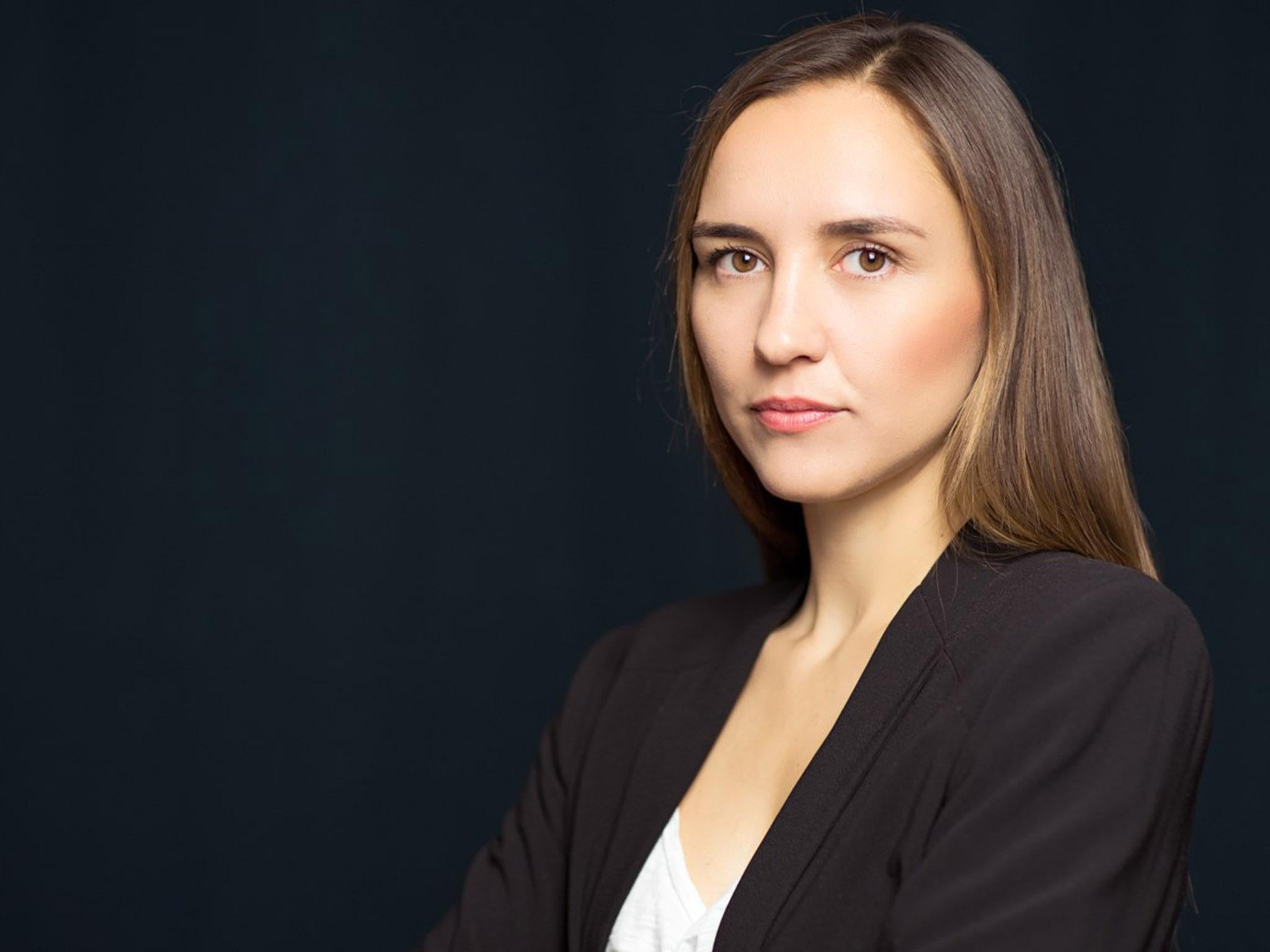
Paving the way for gamer girls everywhere, Funda Yakin was last year made director of media and market development for InnoGames, Germany’s largest video game developer and one of the top five TV-ad spenders in the US.
The 37-year-old had previously been working for Microsoft in Germany and the US, as head of consumer and commercial marketing, bringing more than 15 years of experience. Yakin is now aiming to help women in the tech and gaming industry through a mentorship program, helping young women navigate a male-dominated and sometimes-toxic environment, build up international skills and gain opportunities to expand their network. Described as “a great role model for any career-driven woman” by one of her protégées, Yakin is one of few prominent women in the gaming side of the tech industry.
Malala Yousafzai – education

It seems like longer than five years ago that Pakistani activist Malala Yousafzai was shot by the Taliban at 15 for the crime of going to school – and much longer than that since she made her speech to the UN, advocating girls’ right to an education, that propelled her onto the world stage.
But children grow up fast, and it’s hard to believe how much Malala has achieved in her 20 years. One of the biggest events of Yousafzai’s 2017 was beginning her studies at Oxford University, where she is reading philosophy, politics and economics (PPE). The youngest ever Nobel Peace Prize Laureate, she was honoured with further accolades this year in recognition of her work by a host of global organisations.
She became the youngest UN Messenger of Peace, received an honorary doctorate from the University of Ottawa, received an International Ellis Island Medal of Honour, was named Wonk of the Year 2017 – which honours individuals who demonstrate engagement, focus, intelligence, and passion – from American University, and made it onto Harper’s Bazaar’s list of the 150 most influential female leaders in the UK.
Through the Malala Fund, she continues to campaign tirelessly for girls’ education, focussing in recent years on the plight of Syrian refugee children. Finally, if there was doubt left in anyone’s mind, she was described – along with single mothers and female astronauts – as being “more badass” than Taylor Swift.
Additional reporting by Josie Cox and Jo Turner
Join our commenting forum
Join thought-provoking conversations, follow other Independent readers and see their replies
Comments